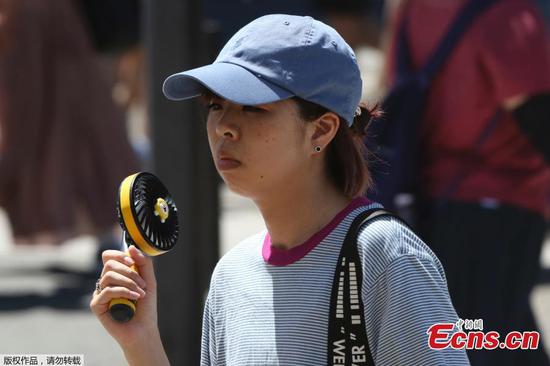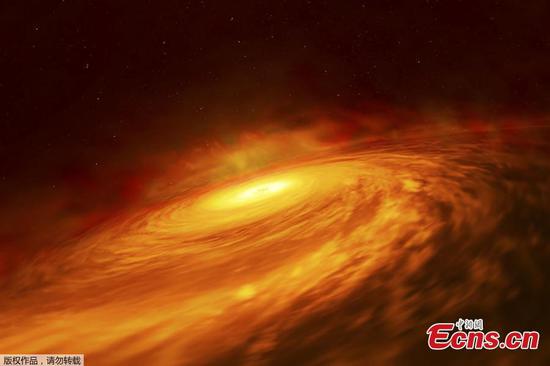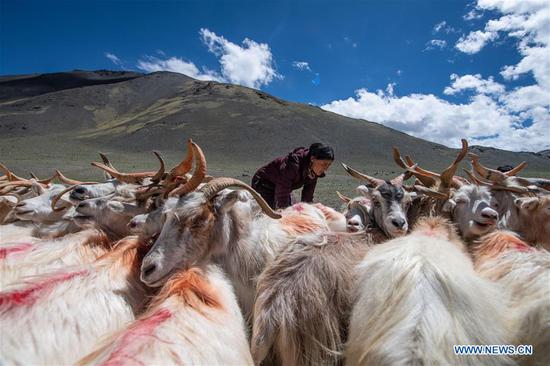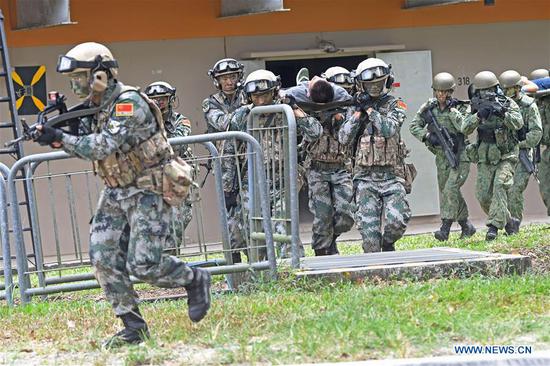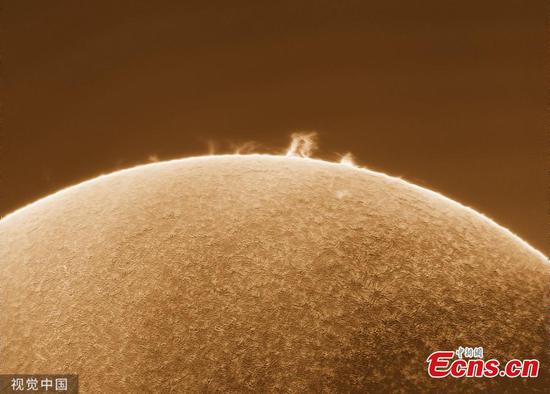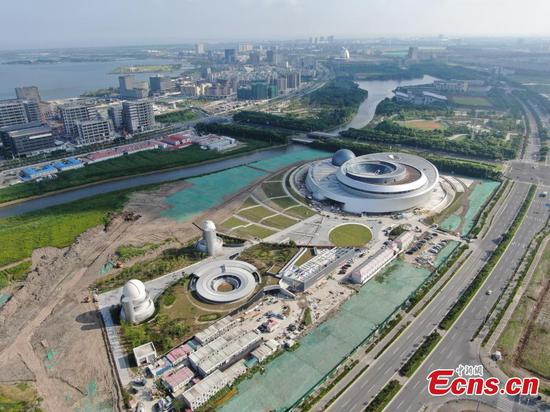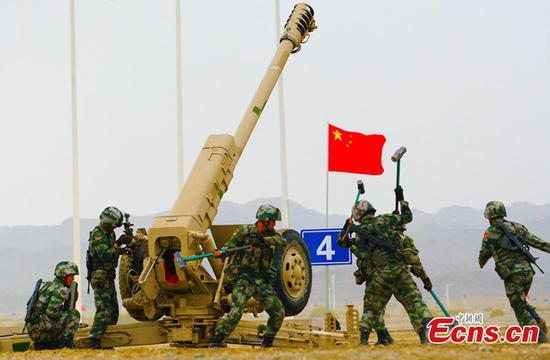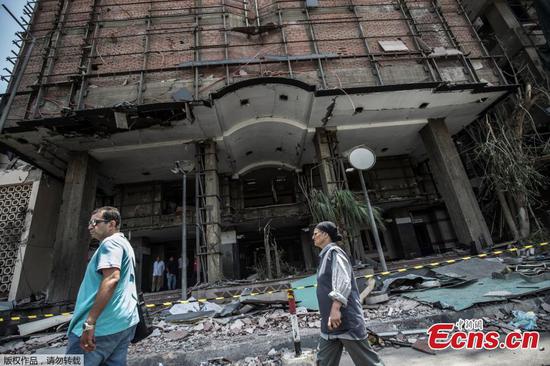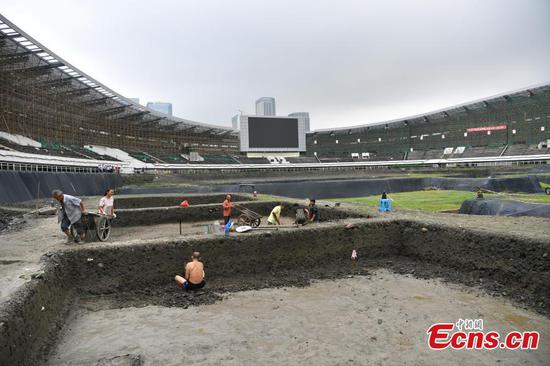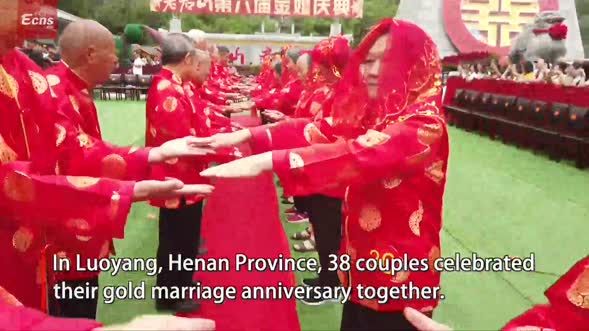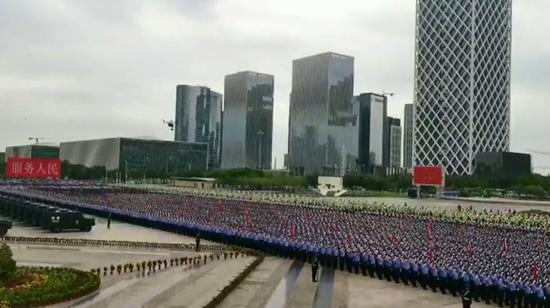The United States' labeling of China as a currency manipulator is unlikely to compel the International Monetary Fund to intervene, as it concluded recently that China's currency practices are in line with its economic fundamentals, according to experts.
On Monday, the U.S. Treasury, following an earlier pronouncement by U.S. President Donald Trump, applied the label to China after the yuan depreciated, escalating the U.S.-China trade friction.
The yuan now trades at about 7-to-1 against the dollar. That's in line with China's economic fundamentals, and the IMF is therefore unlikely to impose sanctions on Beijing, according to Gary Hufbauer, a senior fellow at the Peterson Institute for International Economics in Washington.
Hufbauer said that Trump believes the People's Bank of China (PBOC) engaged in currency manipulation because it failed to support the yuan despite ample cash reserves, apparently creating a new standard overnight.
"The IMF defines currency manipulation as deliberate intervention to weaken a currency in support of larger exports," he told China Daily. "China's yuan was weakened by market forces in response to Trump's latest tariff threat-and there's nothing deliberate about China's action."
The IMF defines currency manipulation in Article IV of its rules and requires a vote by its executive board. The U.S. has its own standards, defined in a 1988 law, expanded by former president Barack Obama as part of the Trans-Pacific Partnership negotiations, and codified in 2015.
"Trump's declaration is not consistent with any of the previously announced standards," Hufbauer said. "Trump is toying with the idea of countervailing currency intervention-selling dollars to buy yuan-but that seems unlikely. The Fed is not likely to go along, and the Exchange Stabilization Fund controlled by the Treasury does not have the big bucks needed to move currency markets."
In July, the IMF said the U.S. dollar was overvalued by 6 percent to 12 percent based on near-term economic fundamentals, while China's yuan was seen as broadly in line with fundamentals.
"Some estimate that a 10 percent appreciation of the dollar, relative to a trade-weighted current basket, reduces U.S. exports by about 1 percent of gross domestic product, or about $200 billion annually," he said.
Usha Haley, the W. Frank Barton Distinguished Chair in International Business and a professor of management at Wichita State University, concurred that China did not manipulate its currency.
"A counter-argument to Trump would be China has just responded to these new rounds of tariffs," she told China Daily.
"The first rule of successful negotiations should be understanding the other party and its interest, and it appears neither side understands the other.
"When elephants fight, the grass gets trampled," she said. "In this case, the trade dispute between China and the U.S. is hurting both parties and the global economy."
In a statement on Monday, PBOC Governor Yi Gang said: "As a responsible big country, China will abide by the spirit of the G20 Leaders Summit on the exchange-rate issue, adhere to the market-determined exchange-rate system, not engage in competitive devaluation, not use the exchange rate for competitive purposes and not use the exchange rate as a tool to deal with external disturbances such as trade disputes."
Currency manipulation is based on two assumptions: First, that a nation can lower the international value of its money by acquiring foreign currency reserves, and second, that a weaker currency gives a nation an unfair trade advantage.
A reserve currency, typically the U.S. dollar, is used to set international prices for gold or commodities such as oil and natural gas. That leads other nations to hold the reserve currency to purchase such goods and to maintain a steady exchange rate.
China's yuan, or renminbi, became a world reserve currency on Oct 1, 2016. The yuan makes up 10.9 percent of the IMF's special drawing rights currency basket, behind the dollar and euro.
Adjusting reserve levels can allow a central back to avoid wild fluctuations in its currency by affecting the exchange rate and increasing demand for the country's own currency, boosting its value.











